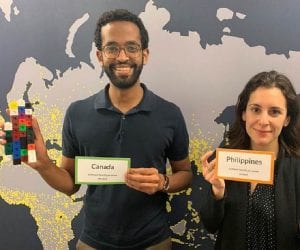Imagine that you lived in a small island nation in the South Pacific, like Nauru or Vanuatu. For you, the regular reports about Arctic ice melt, sea level rise and more violent storms from global warming hit home – predictions show your island under water in the not-too-distant future.
Now think about the resentment you might feel to the large, industrialized nations that contribute the most to your island’s bleak future. How is it right that your people, with such a small carbon footprint, have to endure the consequences of the heavy carbon use on the rest of the planet?
That concern is front and center at the international climate change conference taking place in Warsaw, which coincidentally convened just as as one of the worst typhoons on record devastated part of the Philippines. According to a front-page article in last Sunday’s New York Times, “although the divide between rich and poor nations has bedeviled climate talks for two decades, the debate over how to address the disproportionate effects has steadily gained momentum.” In fact, a group of poor nations is pressing for compensation from wealthier nations for the impacts on their vulnerable lands. Yesterday, a bloc of 132 countries walked out of the talks in protest, as richer nations dismissed the idea of compensation as leading to “unacceptable costs.”
At the same time, global population growth (98 percent of which is ocurring in poor countries) exacerbates climate change further, creating greater demand for food and energy that come at the expense of greater carbon emissions. And as many countries develop, the demand for energy-intensive conveniences makes it that much more difficult to curb those emissions. The varying interests of different groups of countries in the climate debate is well illustrated in our high school activity, “An International Greenhouse.” Originally written back in 1991 when the U.N. first took up climate talks, the activity sets up a Model U.N. simulation to consider the different interests of “have” and “have not” countries, encouraging students to learn about “bloc” politics on the international stage. The newest version of the activity was updated last year to reflect the latest findings from the International Governmental Panel on Climate Change (IPCC). The activity can be found in the Climate Change unit of Earth Matters. The unit includes other activities, as well as a background reading on climate change and a case study on the plight of the polar bears. While climate change is often studied as part of Environmental Science curriculum, it should also be included in the social studies as it will be one of the most pressing issues in international policy for years to come.



